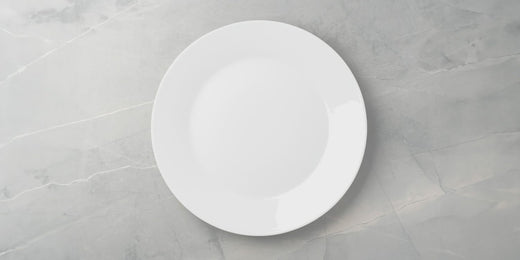Dry Fasting: Is it Safe?

Most of us know about Intermittent and Extended Fasting and all the benefits, such as weight loss and improved metabolic health.
But what about dry fasting?
Fasting from food is one thing, but fasting from water, too? Is that safe?
Let’s look at the pros and cons, and what you need to know.
What is dry fasting?
Dry fasting is pretty much what it sounds like.
You are still fasting from food, but now you’re also not taking in any liquids.
And yes, that means no water.
You’re probably familiar with dry fasting as a religious practice.
For example, during Ramadan, Muslims fast from food and water from dawn to sunset.
But despite how radical it sounds, dry fasting is gaining some traction as a tool for weight loss and longevity.
What are the pros?
So you may be asking yourself, why dry fasting?
Why would I do without water when regular fasting works just fine?
Some of the potential benefits of dry fasting include:
Weight loss
Especially for people who have plateaued, or just want to speed up the weight loss, dry fasting might give you that extra little push that gets things moving again.
Reduced inflammation
Some studies suggest that dry fasting decreases inflammatory cytokines in obese subjects. (Source*)
Less hunger and cravings
Some people swear that the minute they have a drink of anything, even just a glass of water, hunger kicks in.
If that’s the case, it might be worth starting your regular fast with a few hours of dry fasting.
Can tighten loose skin
Loose skin is a problem. Anytime you lose a lot of body fat, you can end up with loose skin.
It’s annoying and frustrating.
With fasting, autophagy can help with that because it recycles some of that loose skin. But sometimes it’s not enough.
And dry fasting supposedly helps to tighten up that skin.
Please note that most of these “benefits” are anecdotal.
There are a few studies out there, but no real controlled, scientific studies to back these claims up.
On the other hand
There are definitely risks with dry fasting, and you should be aware of those if you’re thinking about giving it a try.
Dehydration
Seems obvious, but dehydration will take place.
Not taking in liquids for an extended amount of time is going to dehydrate you to some extent.
Plus, being in ketosis and burning fat is already dehydrating.
So you’re looking at a double whammy when you introduce dry fasting.
Dehydration can cause lots of issues, including headaches, dizziness, and fatigue.
Electrolyte imbalance
Not drinking fluids can very quickly throw your sodium, magnesium, and potassium levels off.
This can lead to issues like muscle weakness, cramps, headaches, nausea, heart palpitations, and fatigue, amongst other things.
Kidney issues
Another obvious one - not drinking enough water can cause issues with the kidneys, such as kidney stones or other kidney problems.
Detox
When you’re fasting and losing fat, you’re also getting rid of a lot of poisons that are stored in your fat.
You need water to help flush those toxins out.
Urinary health
Limiting your fluid intake could potentially lead to urinary tract issues.
Constipation
Not drinking water could potentially slow down your bowel movements and/or make them harder to pass.
Important!
Please check in with your doctor before you attempt a dry fast.
Especially if you have diabetes, kidney disease, high blood pressure, or heart disease.
Bottom line
Even though there may be some benefits to dry fasting, there are definitely some really big risks as well.
Regular Intermittent or Extended Fasting does the job for weight loss and improved metabolic health.
You’ll have to be the judge of whether or not throwing some dry fasting in is worth the risks.
Stay safe!
Source*

